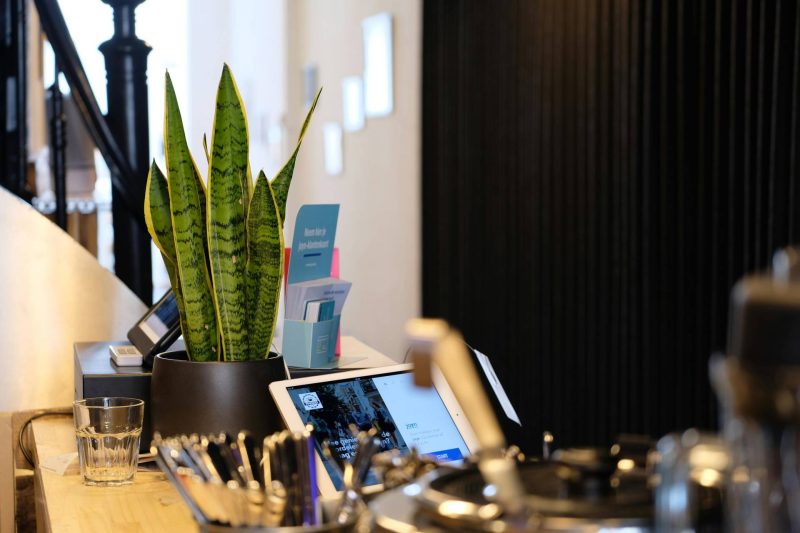The ultimate guide to hotel cost control
In the competitive world of hospitality, effective cost control is crucial for hoteliers to maintain profitability and stay ahead of the game. From labour management to procurement strategies, this comprehensive guide provides a deep dive into all things hotel cost control. Plus, we’ve thrown in some practical tips on how to optimise expenses. Discover proven techniques, such as efficient staffing, smart purchasing, and streamlined operations, that will empower hotel owners and managers to take control of their finances and achieve long-term success in the industry.
What is cost control at a hotel?
In business, cost control is “the practice of identifying and reducing business expenses to increase profits.” Therefore, in a hotel, cost control can be understood in pretty much the same way.
When discussing cost control in the hotel industry, it’s all comes down the management of expenses and the optimisation of resources. From staffing schedules to bulk buying, the practise of successfully managing your costs covers a whole lot of analysing, across all departments of your hotel business.
Although it can be time consuming to reduce your costs, when managed diligently and effectively, cost control allows hotels to ensure profitability and financial sustainability. It takes your business from functioning, to thriving!

So why is hotel cost control so important?
Cost control is crucial in the hotel industry for several reasons. Although some of these might be obvious, it’s worth being reminded of the impact cost saving techniques could have on your business.
Profitability
Quite simply, effective cost control measures help hotels maintain profitability. By managing expenses and optimising resources, hotels can ensure that their revenue exceeds their costs. When done well, you’re left with a healthy bottom line.
Financial sustainability
Cost control is essential for the long-term financial sustainability of a hotel. By keeping expenses in check, hotels can avoid financial strain and maintain stability even during challenging economic conditions. During the pandemic, this was made very clear to hotels across the world.
Competitive advantage
With great cost control, you can stay competitive! Hotels that effectively control costs can offer appealing pricing without compromising on the quality of service. This allows them to attract more guests and gain a competitive edge in the market.
Sustainability
Cost control encourages hotels to optimise their resources, such as energy, water, and supplies. By reducing waste and implementing efficient practices, hotels can minimise their environmental impact.
Staff retention
By managing costs effectively, hotels can allocate resources to provide competitive salaries, benefits, and training programs, which can enhance employee satisfaction and reduce turnover. In doing so, not only will you save money, but a lot of headache too!
Budgeting and planning
When a hotel carries out effective cost control, they know exactly where they stand. With a clear understanding of their expenses, hotels can then create accurate budgets and make informed decisions. Indirectly, this helps in strategic planning, forecasting, and setting realistic financial goals.
The types of hotel costs and expenses
If you’re looking to understand where your hotel is spending too much money, a good place to start is with the different kinds of costs. From here, you’ll be able to start analysing your costs more deeply and setting out a path for cost cutting.
A hotel’s operating expenses can be divided into two different types:
Fixed costs
These costs generally remain the same regardless of how busy the property is. Having said this, they may change periodically. Let’s take rent for example. A hotel pays the same rent and property taxes whether it’s running at 30% occupancy or 100% occupancy. Identifying these costs is helpful for calculations, but often can’t be changed too much with implementing significant changes to your business.
Examples of fixed costs in hotels include:
- Payroll-related expenses
- Rent or mortgage
- Property taxes
- Insurance
- Fixed monthly bills like cable and internet
- Franchise or management fees (if applicable)
- Technology (E.g., fixed monthly subscription fees)
Variable costs
On the other hand, variable costs can fluctuate from day to day. They are often correlated with occupancy levels. As a result, variable costs are harder to predict but easier to control, making them prime targets for cost-trimming. Take for example cleaning costs. The costs of hourly staff and cleaning supplies will be higher when a hotel is running at 100% occupancy than at 30% occupancy.
Examples of variable costs in hotels include:
- Hourly labour
- Utilities (like gas, electricity, and water)
- Marketing and distribution
- Housekeeping supplies
- Maintenance costs
- Food and beverage inventory
- Credit card commissions and other payment processing fees
- Technology (if fees are charged on a per-usage basis)

How to analyse your costs at a hotel
With your list of costs now divided up, you’ll be able to start identifying where you might have flexibility to make changes or cuts. Follow a structured approach with clearly defined steps and you’ll be on your way to a more effective business model. Here’s what we recommend:
Identify your expenses
Start by identifying all expenses incurred by the hotel. Categorise them into fixed and variable costs and then into smaller groups.
Establish benchmarks
Find out where your costs should stand and compare this to where you actually are as a business. This allows for a comparison of results to other properties and an idea of where you stand.
Analyse your expenses
Start to identify any outliers that require further review and make a resultant cost-cutting to-do list.
Implement cost-saving measures
Based on the analysis, implement cost saving techniques in areas where costs can be reduced (without affecting the quality of service of course).
Keep monitoring your expenses
Continuously monitor your expenses to ensure the effectiveness of your new cost-saving measures.
Hotel cost cutting techniques
With some tedious analysis processes out of the way, you’ve now got an overview of where your property stands. The next stage of your cost cutting mission is to start making some changes.
1. Make some calls to your suppliers
Negotiating with suppliers is crucial for hotels to cut costs and improve profitability. Many people are wary of picking up the phone and asking for discounts or deals, but with some confidence, you’ll be able to make a big different to the overall monthly costs of your property.
Hotels can cut costs by leveraging bulk purchasing for volume discounts, entering into long-term contracts, comparing prices from multiple suppliers, exploring alternatives, negotiating flexible payment terms, and seeking value-added services. Through effective negotiation strategies, you can begin to optimise your procurement processes and achieve significant cost savings.

2. Keep your staff content
All hotel owners will know that keeping staff happy is crucial for reducing turnover and minimising costs. High employee turnover is famously known to decrease productivity, increased stress levels, and of course result in financial losses.
So to improve staff satisfaction, hotels can take several steps. Set clear job expectations from the beginning, providing regular check-ins to address concerns. Consider offering management training, implementing referral programs, providing competitive compensation and benefits, and working hard to foster a positive company culture.
By putting your staff first, you’ll create a supportive work environment and reduce turnover. Plus, those talented employees you can’t bare to see leave are more likely to stay, cutting time and costs associated with recruitment and training.
3. Fix things before they break
It’s easy to wait until things get bad before you fix them, but this can be a big mistake in the hotel industry. Taking a proactive approach to fix and maintain things before they fail is in fact an important cost-saving strategy.
By implementing preventive maintenance practices, hotels can avoid costly repairs, minimise downtime, and actually extend the lifespan of their assets. You might want to consider regular inspections and cleaning practises, as well as ensuring that your servicing appointments are never missed. In doing so, major breakdowns will be a rare occurrences and wear and tear is reduced.
4. Analyse your marketing strategy
Marketing is a super vital component to your home business. But are you spending money in the right place? And is your marketing strategy kept up to date?
To analyse your marketing strategy and reduce costs, hotels should take a comprehensive approach. Start by analysing your marketing expenses, identifying areas where costs can be minimised without compromising effectiveness. Keep informed on the newest marketing trends and ask your marketing team to feel free to suggest new ideas.
High-impact tactics (such as social media ads) can be a great way to get your business off the ground, whilst long-game techniques such as SEO strategy can be a fantastic investment. You’ll want to make sure that you’re always measuring your success too, so that when it comes to reviewing your strategy, you’ve got information to help you decide.

5. Analyse how you schedule staff
Efficient scheduling is a simple and effective method to control labour costs. It involves aligning staffing levels with the ebb and flow of arrivals and departures. Although it it easier said than done, there are some ways to make it work well.
For instance, scheduling housekeeping staff should take into account the projected daily occupancy and the average time required to clean a room. In all departments, costs can be reduced by allowing employees to leave early or come in later when the hotel is quieter than expected. Stay flexible and on your toes, and you’ll be able to optimise your staff whilst minimising unnecessary expenses.
Remember, cost control doesn’t mean cutting staff numbers. In doing so, you can cause a lot of damage to your business. You always want enough staff to ensure optimal functions at your property, but never too much to drain profits.
6. Look into bulk buying
One of the very best ways to cut costs at a hotel is to bulk buy. There are several ways this can have an impact on your numbers. Firstly, purchasing supplies in large quantities often comes with discounted bulk prices, allowing hoteliers to save money. In addition, buying in bulk reduces the frequency of orders and the need for multiple trips to suppliers, saving time and transportation costs. By stocking up on essential items, hotels can also minimise emergency trips to the store, further reducing expenses.
Cut costs with 1834 Hotels
1834 Hotels specialises in the management and providing visibility and analysis of hotel costs and expenses. Cost control and expense management is often where the profit is made or lost within the business and we give this area our full attention. If high costs and expenses sound like a familiar story, don’t worry, it’s not too late!
We will work your expense lines and control your wage costs and the cost of goods across all areas of your business. Plus, we will support your General Manager to successfully manage this on a daily basis, helping them make necessary decisions to ensure your hotel is profitable.

